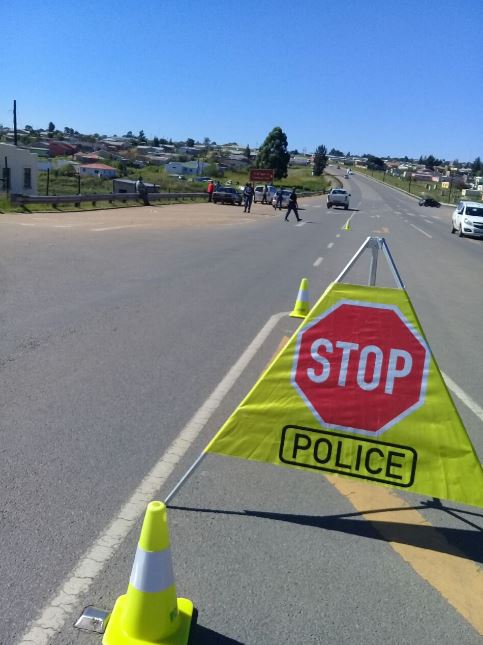Vrystaat Lanbou verwelkom veranderinge aan strategie vir veiligheid
6
November
“Die kern van die hersiene Landelike Beveiligingstrategie (LBS) is om veiliger landbougemeenskappe te hê, maar dit kan slegs gebeur as almal daarby inskakel én ’n ingesteldheid van samewerking het.” Só sê Jakkals le Roux, Voorsitter van Vrystaat Landbou (VL) se Landelike Veiligheidskomitee.
Die hersiene LBS lê groter klem op samewerking en daarom versoek VL alle rolspelers om aktief daaraan deel te neem om misdaad te bekamp. Le Roux sê almal wat deur die strategie uitgelig word, moet saam met georganiseerde landbou, die Suid-Afrikaanse Polisiediens (SAPD), die Suid-Afrikaanse Nasionale Weermag (SANW) en ander departemente werk sodat ’n “gesamentlike gemeenskapsbenadering” gevolg kan word.
VL verwelkom die LBS en versoek die SAPD om by die spesifieke tydlyne vir die implementering en evaluering daarvan te hou. Daar moet ook opleidingswerkswinkels, tussen die SAPD, SANW, georganiseerde landbou en ander rolspelers, op distriksvlak plaasvind om die uitvoering daarvan te verseker.
Die hersiene LBS, wat heelwat veranderinge bevat, is op 11 Oktober 2019 in Makhado deur die Bheki Cele, Minister van Polisie, en Genl. Khehla Sitole, Nasionale Polisiekommissaris, bekend gestel. Dié strategie, wat voorheen vier fokusareas gehad het, is nou op agt pilare gegrond.
Vier ekstra fokusareas
Die eerste van vier ekstra fokusareas is om gemeenskapsbetrokkenheid en rolspelers se samewerking te verhoog om gemeenskappe teen misdaad te mobiliseer. Dit sluit die daarstelling van privaat ondersteunde tegnologiese hulpmiddels in wat deur privaat of publieke vennootskappe bewerkstellig word.
Tweedens om regeringstelsels en wetgewing wat misdaad en veiligheid negatief beïnvloed te verbeter en uit te brei. Verder om ook ’n ontledingsproses oor georganiseerde misdaadbedreigings te implementeer wat groepe en sindikate moet verbind wat by landelike misdaad betrokke is en laastens om die uitrol van die LBS kwartaalliks te monitor, elke drie jaar te evalueer en elke vyf jaar te hersien.
Monitor en uitvoering belangrik
Le Roux meen dis belangrik dat die LBS op alle vlakke van samewerking gemonitor word en dit is waar tydlyne belangrik is. “Dit beteken dat daar binne ’n jaar of twee ’n wesenlike verbetering moet wees wat kapasiteit, mannekrag en toerusting betref.”
Dit moet ook nie net ’n teoretiese dokument wees nie. “Daar moet daadwerklike uitvoering geskied, wat die uitvoering van kort- en mediumtermyn strategieë insluit.”
Groter samewerking by vergaderings van byvoorbeeld die prioriteitskomitee is belangrik en beter verhoudinge moet tussen almal gebou word. “Daar moet ook nouer kontak en skakeling met die SAPD op alle vlakke, grondvlak-, distriks-, provinsiale en nasionale vlak, wees,” sê Le Roux.
Die hersiene LBS bepaal ook dat verskeie ander aspekte volgens tydlyne, veral teen Maart 2021, aandag moet geniet.
Dit sluit onder meer werkstudies in om die vestiging van landelike veiligheidseenhede daar te stel, die kapasiteit van bestaande veediefstal-eenhede uit te brei en om misdaad intelligensie ’n groter rol te laat speel in die daarstel van verbindinge oor georganiseerde misdaad.
Die fokus van eiendomsmisdade moet uitgebrei word na diefstal van plaasimplemente en produkte en die onwettige jag met honde moet aandag geniet.
Die SAPD se kapasiteit, mannekrag en hulpbronne moet voorkeur kry en private sekuriteitsmaatskappye en burgerregte-organisasies moet ingetrek word. Verder is vinnige reaksiespanne én die versterking van grensoperasies ook ’n prioriteit.
Wetgewing soos die nasionale Skutwet, wat al jare sloer om geïmplementeer te word, moet ook gefinaliseer word.
FSA welcomes these changes to strategy about safety
“The crux of the revised Rural Safety Strategy (RSS) is to have safer agricultural communities, but this can only happen if everyone is involved and has an attitude of cooperation.” This is according to Jakkals le Roux, Chairman of Free State Agriculture’s (FSA) Rural Safety Committee.
The revised RSS places a greater emphasis on cooperation and therefore FSA urges all role players to actively participate in combating crime. Le Roux says everyone highlighted by the strategy needs to work with organized agriculture, the South African Police Service (SAPS), the South African National Defence Force (SANDF) and other departments so that a “joint community approach” can be followed.
FSA welcomes the RSS and requests the SAPS to adhere to the specific timelines for its implementation and evaluation. Training workshops, between the SAPS, SANDF, organized agriculture and other role players, must also be held at district level to ensure its implementation.
The revised RSS, which contains a lot of changes, was launched in Makhado on 11 October 2019 by Bheki Cele, Minister of Police, and Gen. Khehla Sitole, National Police Commissioner. This strategy, which previously had four focus areas, is now based on eight pillars.
Four additional focus areas
The first of four additional focus areas is to increase community engagement and cooperation of role players to mobilize communities against crime. This includes the creation of privately supported technology aids provided by private or public partnerships.
Secondly, to improve and expand government systems and legislation that negatively impact crime and safety. Furthermore, to implement an analysis process on organized crime threats that should link groups and syndicates involved in rural crime and lastly to monitor the rollout of the RSS quarterly, evaluate it every three years and review it every five years.
Monitoring and implementation important
Le Roux believes it is important that the RSS is monitored at all levels of cooperation and this is where timelines are important. “This means that there should be a substantial improvement in capacity, manpower and equipment within a year or two.”
It should also not just be a theoretical document. “Actual implementation must take place, which includes the implementation of short and medium term strategies.”
Greater cooperation at meetings of, for example, the priority committee is important and better relationships must be built between everyone. “There must also be closer contact and liaison with the SAPS at all levels, which includes ground, district, provincial and national level,” says Le Roux.
The revised RSS also stipulates that various other aspects should be addressed according to timelines, specifically by March 2021.
These include working studies to establish rural safety units, expand the capacity of existing stock theft units and crime intelligence should play a greater role in establishing links on organized crime.
The focus of property crimes should be extended to theft of farm implements and products and the illegal hunting with dogs should be addressed.
The SAPS’s capacity, manpower and resources must be prioritized and private security companies and civil rights organizations included. Furthermore, quick response teams and strengthening of border operations are also a priority.
Legislation such as the national Pounds act, which the implementation of has been lagging for years, must also be finalized.




